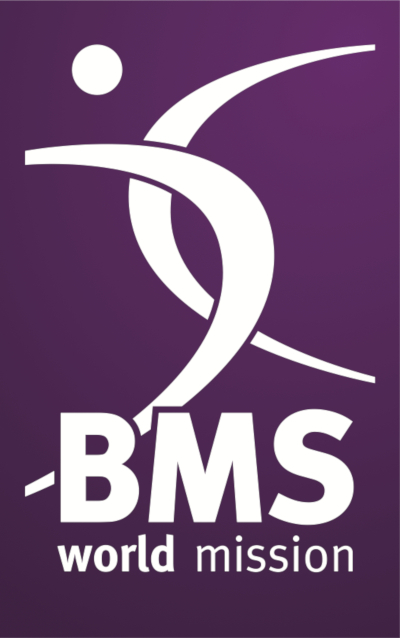
Meet the Hamlets
Ingrid and Roger Hamlet, along with their children Mark and Joel, travelled to Chad in January to set up a prosthetics and orthotics department at Guinebor II Hospital. As they get settled in, we wanted to hear more about how they’re settling in and their plans for their exciting work.
Could you tell us a bit about your background and what led you to this point?
Roger
I was a mission kid, my parents were in Nepal from before I was one until I was ten. I struggled to fit in back in the UK and as a young teenager, I wanted to help with the people I'd met and the poverty I’d seen as a small child.
When I was deciding what to study, I wanted to think about what I could take from my British privilege, the education that I was getting for free, so I had something to offer in a poorer context in another country. And that was why I chose prosthetics and orthotics.
Ingrid and I met at university, we got married between 3rd and 4th year and then we wanted to get a couple of years of UK-based experience and then go overseas. Around ten years later, we managed to look into where we could serve God abroad.
Ingrid
I grew up in Devon and I was going to church, but I didn't know that missionaries or mission agencies still existed. I wanted to work in healthcare, but I didn't know quite which area. And I just felt really strongly that God was telling me it would be prosthetics and orthotics and it will take you abroad. So I started down that route, applied for prosthetics and orthotics and got accepted at Strathclyde in Glasgow, which is where Roger and I met. We met on the first day because we were in the same class and quite quickly it seemed like we were heading in the same direction. It's through meeting Roger and hearing about his background that I realised it was possible to serve overseas as a Christian. I just assumed it would be with a humanitarian organisation but then I realised that I could combine my faith with going abroad.
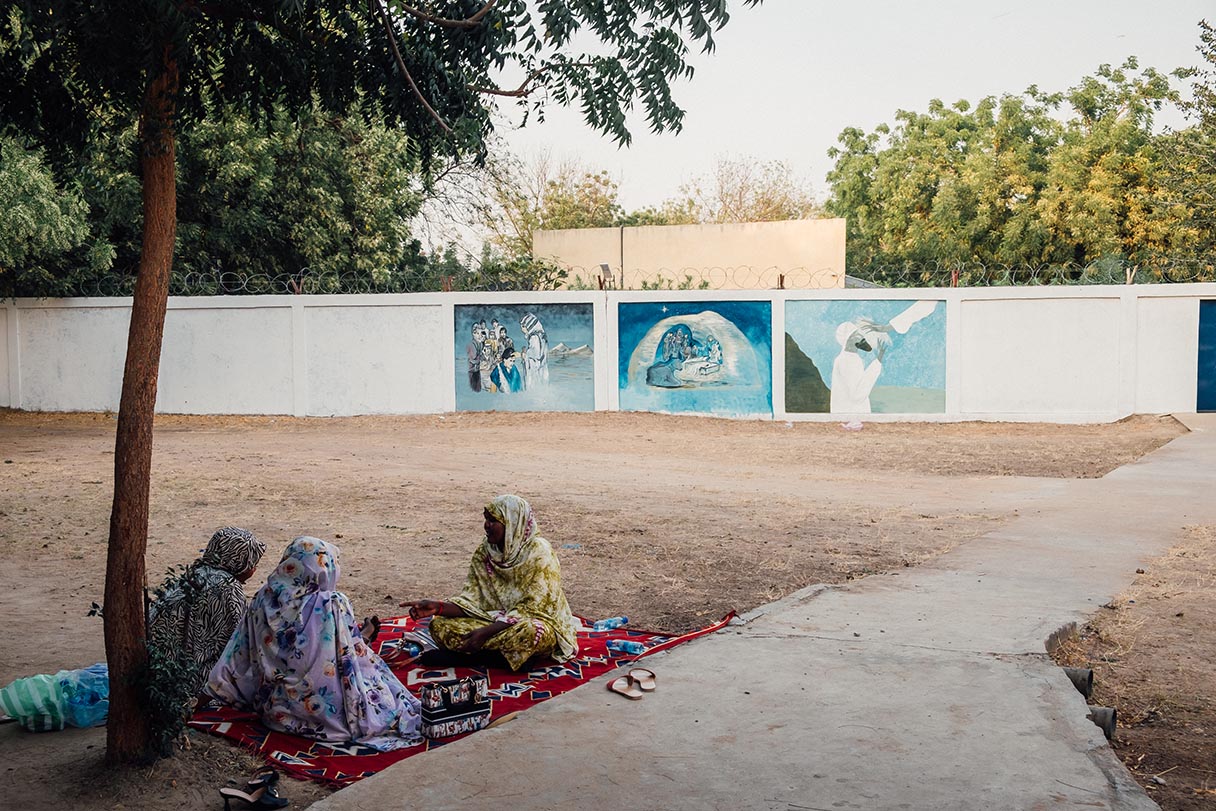
Why do you think it's so important that you are able to combine your faith and your skills with this desire to help other people?
Ingrid
For me it's being a witness, not just through word, but through deed, saying God cares about everybody, he cares about those with disabilities, he cares about the poor. That's what Christians are meant to witness to the world.
Roger
In terms of what I personally have to offer, I'm more practical with my hands than I am gifted in sermons and street evangelism. And it's so important that people know that the reason behind it is because of Jesus. To work in a Christian hospital where the patients are prayed for weekly, there's missionary chaplains who come in and talk to the patients, where we know that it’s because of Jesus that this hospital is running, that’s really important to me.
You guys have been in Chad for almost three months now, how is it all going?
Roger
It's got hotter!
Ingrid
In mid-January when we arrived, it was high 30s but cooling down quite a lot overnight. Now it's probably around 42-43 most days. But it doesn't cool down as much at night so everything inside stays warm.
Roger
We've also got much more confident with the driving. The driving is just extraordinary. It's a really, really big cultural shock.
Ingrid
There's a general acceptance to drive on the right-hand side of the road. But you don't always have to.
There’s motorbikes everywhere that just nip in and out. You've got to be very aware. And there might be the odd camel running in the wrong direction down the dual carriageway!
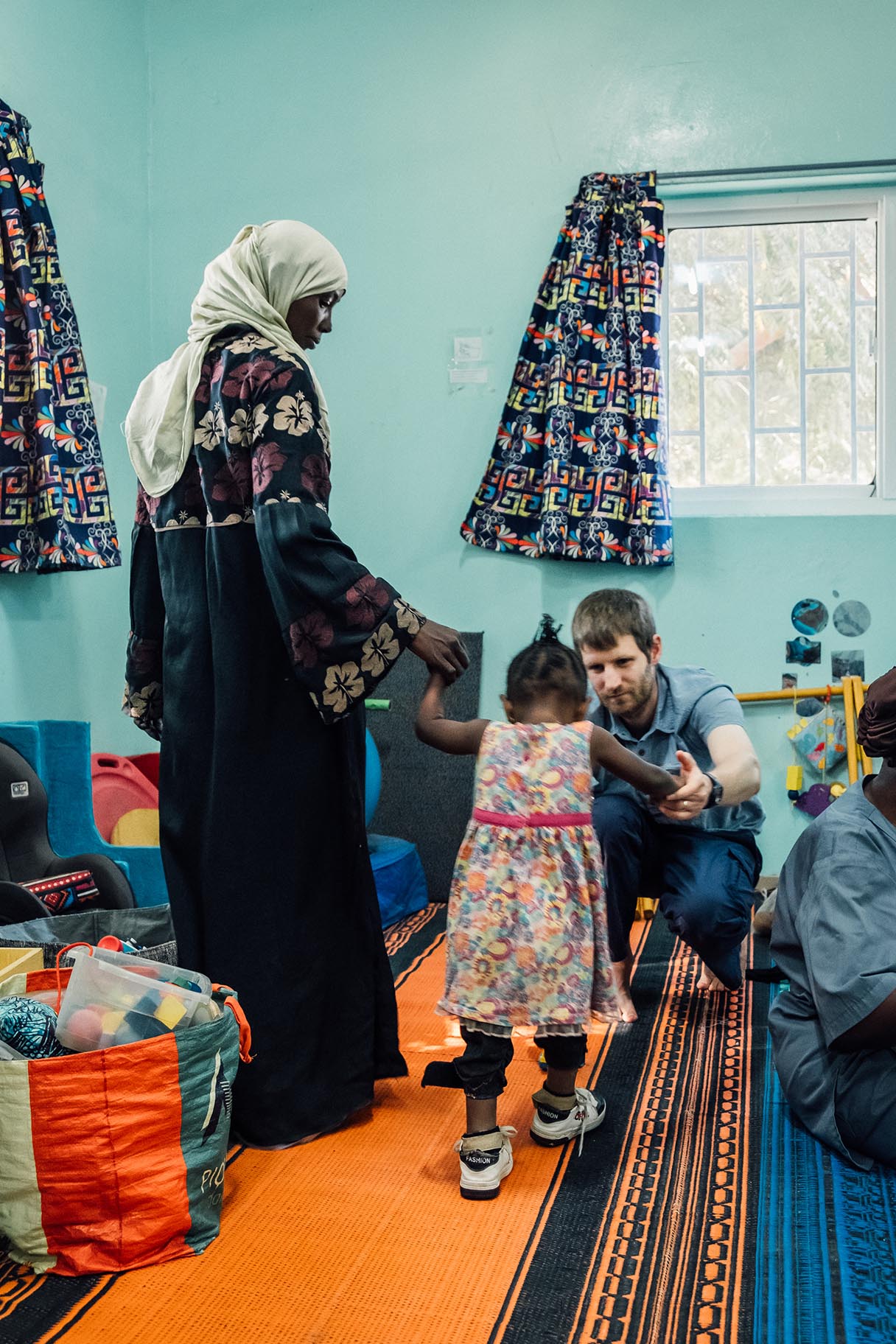
And how are you settling into life at Guinebor II Hospital?
Roger
We've been over to the hospital and are starting to meet staff, going to team meetings and particularly spending time in the physio department so we can get to know them better.
Ingrid
We’ll be working quite closely with the physios in the future, once the prosthetics and orthotics department is set up. There'll be some crossover with our patients, so it's been nice to get to know them.
For people who might not know what prosthetics and orthotics is, could you explain that? And what’s your timeline for setting up the department?
Ingrid
Prosthetics is artificial limbs, so legs and arms. And orthotics is body braces and supports, so someone might have pain or mobility issues or some kind of physical trauma and it's there to aid healing.
Roger
The timeline of setting up the department is a difficult question to answer because there's so many variables. At the moment we are trying to prepare budgets for what each aspect of the department will cost. We need to have the tools for a workshop, we need to have some materials and components to make devices, we need to have solar power to power the workshop and we need to build a building. Another part that will come next year is sending a local person for training in prosthetics and orthotics so that once they've completed a three-year diploma, they can come back to the centre and join us.
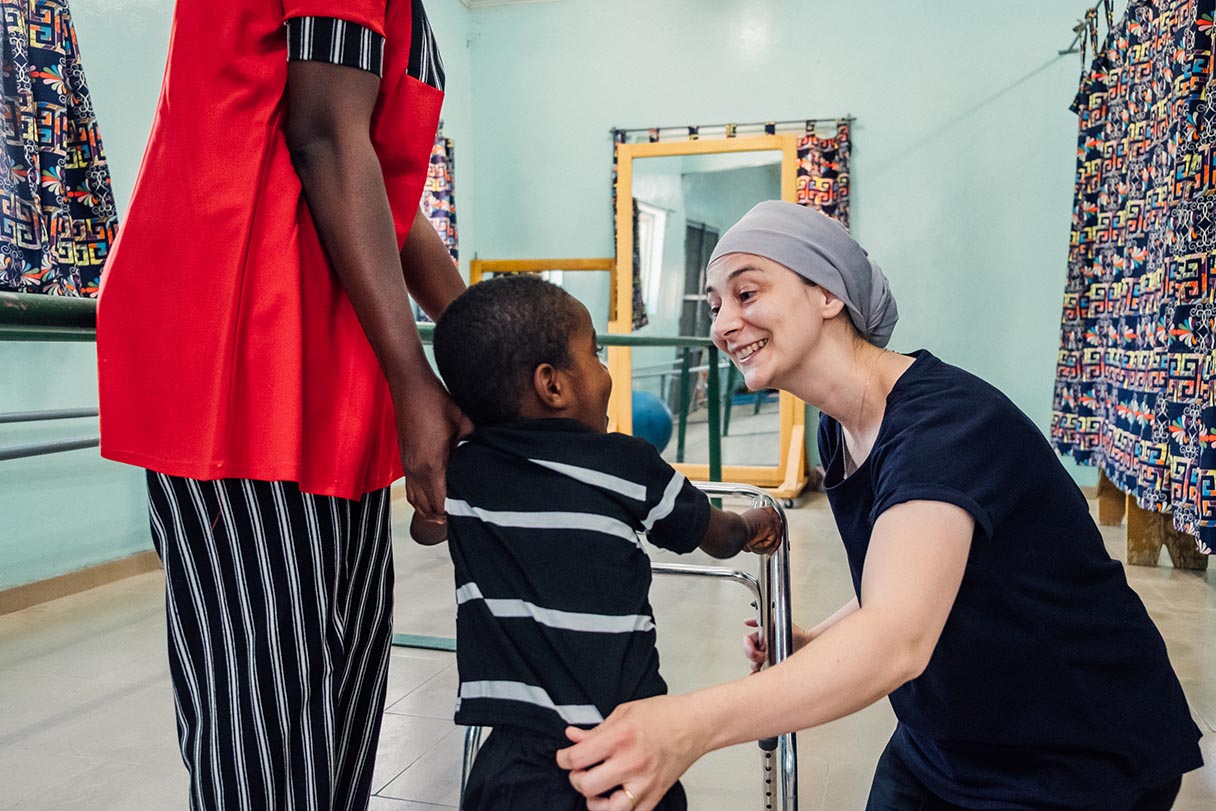
What is your understanding of how necessary this work is in Chad?
Ingrid
The need is immense. You only need to walk out onto the street to see it. In terms of what's here already, there are about six technician clinicians that do a similar role to what we do in a country of about 18-19 million. But just to give you a comparison, in the UK we have at least 1,100 people that do what we do.
Roger
The lack of health and safety and road traffic safety is horrendous, resulting in a lot of orthopaedic need. And there’s reduced medical care as well. We met a young man who had an insect bite that had got infected, and he'd ended up with a mid-thigh level amputation. You just wouldn't hear of that in the UK, an insect bite that's resulted in a life-altering treatment.
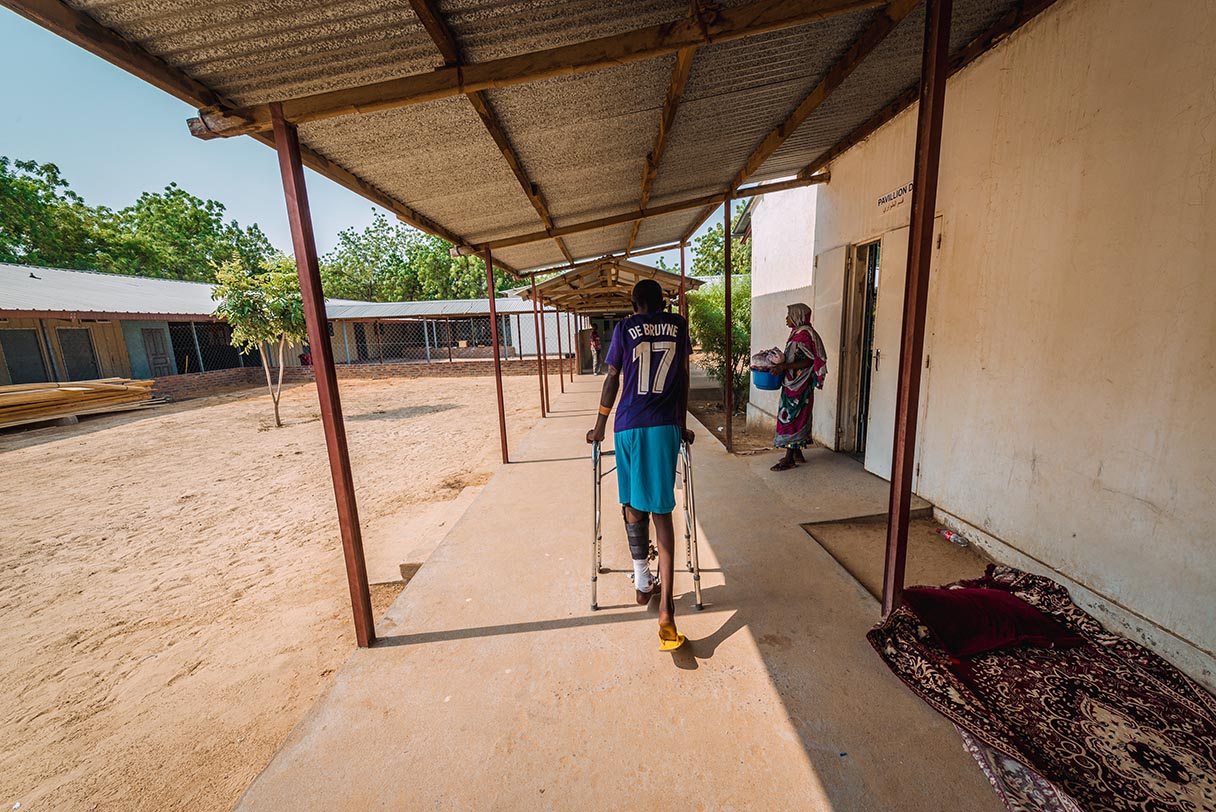
Is the hope that you'll be able to keep training up more Chadian people as time goes on?
Roger
Our goal is to have at least two, if not three, local Chadians in the pipeline for training, so they can carry on the service in the long term. We would like to establish the department, work here for a while, but then also make sure that there’s sustainability for the longer term. It's a three-year course and then when the trainee comes back you want to have some overlap with them, work with them, and make sure that they're settled and will stay at the hospital.
What do you think is going to be the biggest challenge as you get started?
Roger
We have a vision for what we'd like to be able to do. But we know it will take a while. There's the work we're doing now to prepare accurate ideas of how much things will cost, and then we need to do some fundraising, and then there's going to be a time of building construction. We're aware that there'll be a bit of time between now and the department really flourishing.
Ingrid
Language will also be one of the biggest challenges for us. There are over 100 languages in Chad. The hospital runs in French, but not all the patients speak French. Most will speak Chadian Arabic, but if someone comes from the countryside, they might not even speak that. I've started some Chadian Arabic lessons but it's going to be challenging.
Author: Laura Durrant
Published: 17/04/2025
How to keep praying for the Hamlets
Ingrid and Roger’s work is groundbreaking and will make a huge difference to the community they serve. Will you keep praying for them as they get this project underway? Ingrid and Roger have shared some specific points that they would like prayer for, you’ll find them by downloading this prayer sheet. Please keep the Hamlet family in your prayers.

